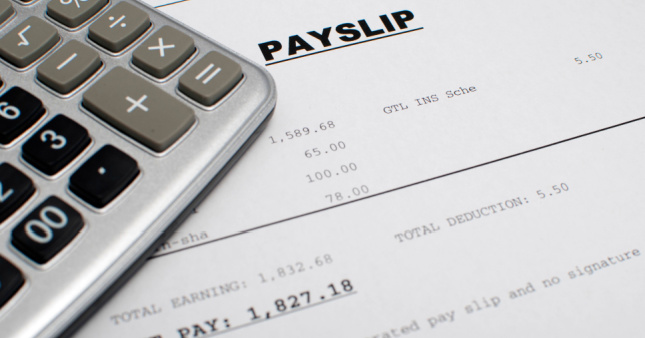
What is back pay?
Back pay is the payment of monies owed to an employee that were not paid by an employer in a previous pay period.
For example, if an employee’s wages were underpaid due to a payroll error or oversight, the payment of the outstanding amount in a future pay period is referred to as back payment.
Why do employees get back pay?
An honest day’s work should always be fairly paid. However, employees entitled to back pay will have been underpaid, or completely unpaid, by a current or previous employer. Common reasons for back pay include:
Payroll and accounting errors
Unpaid overtime, leave, bonuses or commission
Minimum wage violations
Do employers have to make back payments?
In short, absolutely. Employers must issue back pay whenever they underpay an employee’s wages. It makes no difference if the underpayment was intentional or not, the employer must pay the full amount of back pay owed.
If an employer does not make back payments, they may be in violation of wages and pay laws provided by the Fair Work Act 2009. This could lead to a legal case and financial penalties.
How can I avoid underpayment?
An employer may not realise they have underpaid wages until the employee raises the matter, or the Fair Work Ombudsman performs an audit. Here are a few practical tips that will help you avoid underpayment:
✔ Be sure you are paying your employees correctly by regularly reviewing their wages against the relevant industrial instrument and/or the national minimum wage.
✔ Make sure you keep up to date with any pay increases or award changes. For example, the annual minimum wage increases usually come into effect from the first full pay period on or after 1 July each year.
✔ Ensure all your workers are employed under the correct award and at the appropriate classification level for the job they do.
✔ Remember the employee’s classification level or pay rate may change, or they may be entitled to receive loadings or allowances as they gain more experience, complete further training, or are promoted to higher levels of seniority.
✔ It’s also important to consider that a junior or apprentice pay rate may increase for different reasons, including age, time served and competency.

Are you paying your staff fairly?
Australia’s wages and modern award system can be difficult to understand. For peace of mind, download our FREE E-Guide to ensure your business is fully compliant.
How do I calculate back payments?
There are five steps to follow when accurately calculating back pay:
Figure out when the employee was underpaid and how long for. This is called the underpayment period.
Next, check the employee’s wages records for that period to establish how much the employee was actually paid. This is the gross amount the employee was paid for the underpayment period before tax.
Work out how much the affected employee should have been paid in wages for the underpayment period.
Check any other entitlements owing for the period separately, and check whether you need to pay any additional tax or superannuation.
Combine the real wages and all paid entitlements owed. Then subtract the total amount paid to the employee for the underpayment period – the difference is the amount of back pay owed.
Finally, be sure to discuss the underpayment with the employee. Explain what led to the underpayment, what you have done to fix it, how you have calculated the amount of back pay, and when the employee will receive it.
Pay slips and record keeping
As part of their wages and pay obligations, employers should keep accurate payroll records, and give all employees pay slips documenting:
The pay period
The gross and net amount paid
The number of hours worked (if an hourly pay rate applies)
Penalty and overtime payments
Loadings, allowances or other entitlements
Any deductions for that period
Additionally, the Fair Work Act 2009 also demands that employers keep wage and time records for at least 7 years.
Frequently Asked Questions
When should I make a back payment to an employee?
Ideally, you should make back payments in the next pay cycle after you realise a worker has been underpaid. In some circumstances this may not be possible. In this case, you should agree a payment date with the employee and document the agreement in writing.
How long can an employee claim back pay for?
An employee can only claim back pay through court proceedings for six years after the underpayment period.
Get wages and pay advice you can trust
If you need trustworthy advice about wages and pay, our FREE 24/7 Advice Line is available to all Australian business owners. Call 1300 651 415 today to get all your questions answered today.



